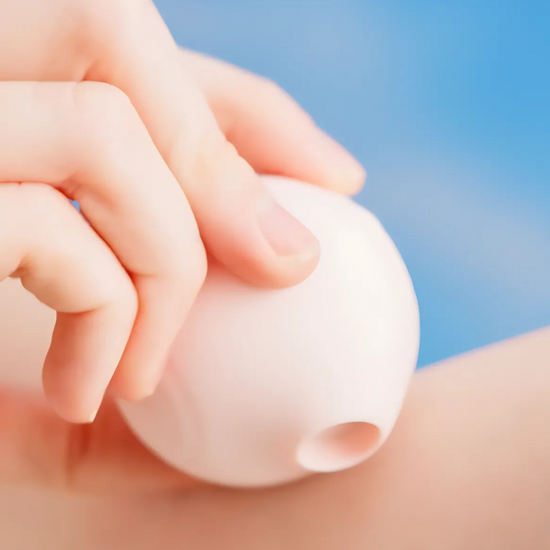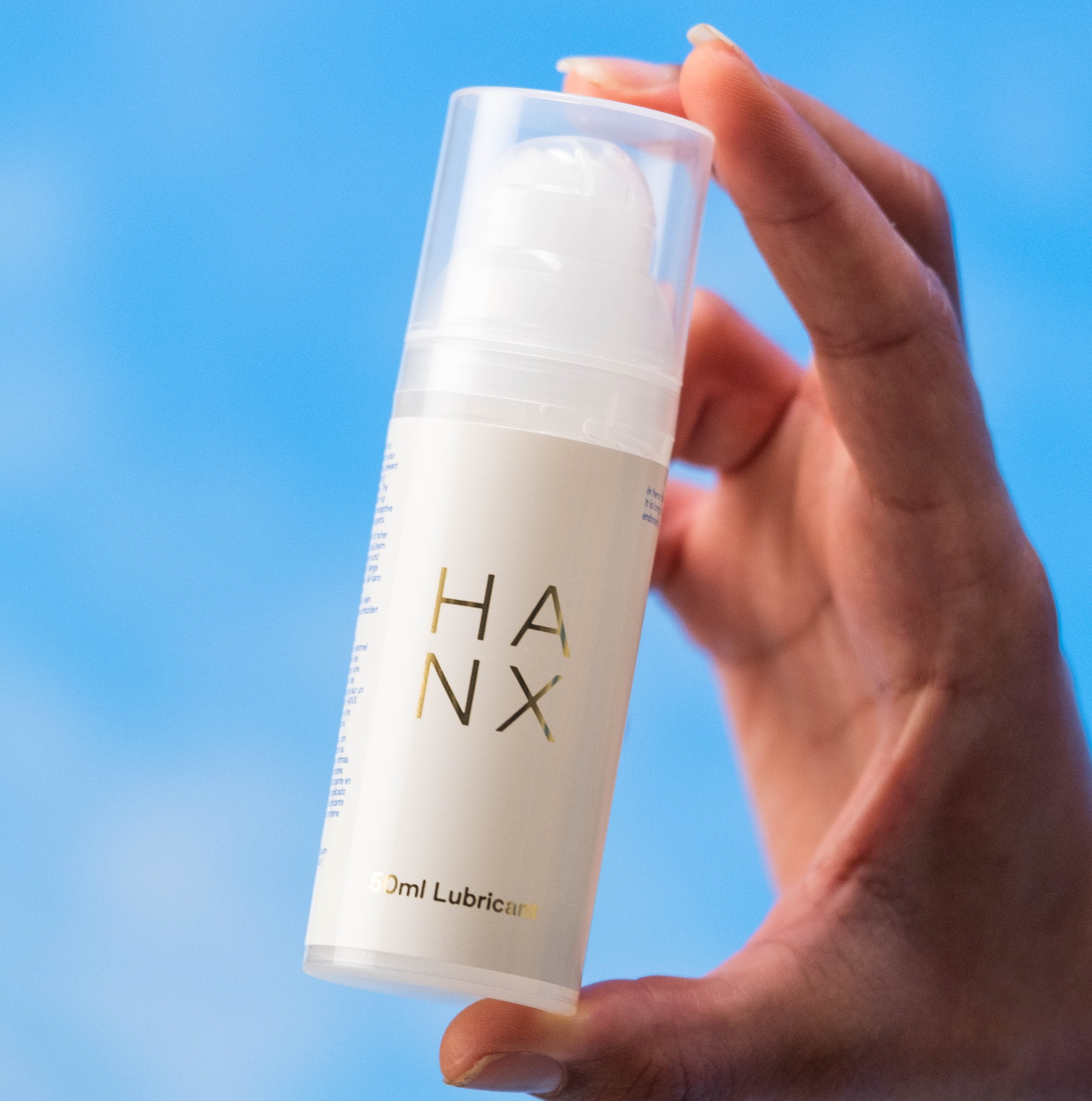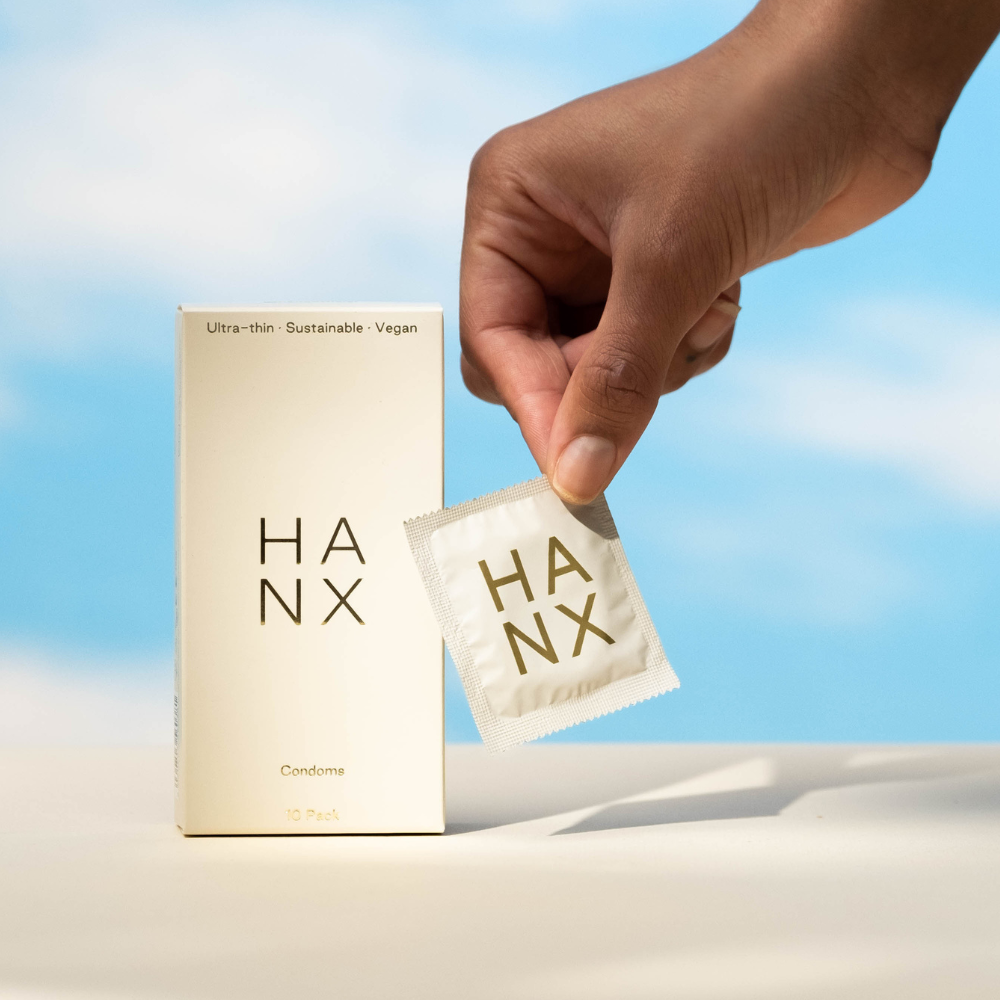What Is Bacterial Vaginosis?
Drull roll please for... bacterial vaginosis. BV is a topic that often crops up in our Instagram DMs, so we’re here with our Co-Founder, Dr Sarah Welsh aka Dr HANX, to bust those myths and take it back to basics when it comes to BV. With the launch of our discreet, same-day-dispatch bacterial vaginosis treatments, we're ready to drop knowledge, too. Get ready to learn about the causes of and treatments for bacterial vaginosis.
What is bacterial vaginosis?
Bacterial vaginosis (BV) is a very common condition that is caused by an imbalance of bacteria in the vagina, which causes abnormal vaginal discharge, which may develop a fishy smell. BV is the common cause of abnormal vaginal discharge in women of reproductive age.
What causes bacterial vaginosis?
Bacterial vaginosis is a condition that is characterised by an overgrowth of bacteria naturally found in the vagina, which upsets its natural balance. This causes the vagina to lose its normal acidity and it’s pH level (the measure of how acidic or alkaline something is) rises above 4.5.
Naturally, our vaginas include “good bacteria” that help keep our vaginas healthy. This includes anaerobic bacteria (bacteria that grow without oxygen) and lactobacilli bacteria. However, in BV, the anaerobic bacteria increase in number, killing off the lactobacilli bacteria and disrupting the vaginas natural balance and meaning it becomes less acidic than normal. This environment perpetuates the growth of anaerobic bacteria.
How common is bacterial vaginosis?
BV is actually the commonest cause of abnormal vaginal discharge, yet we don’t talk about it or know enough about it, and It can be embarrassing and distressing to deal with. It affects up to 50% of vagina-owners at some point in their lives and with between 5-70% being affected at any one time.
How do I know I have bacterial vaginosis and what are the symptoms of BV?
Around half of people with BV do not have any symptoms, but if you do, it tends to be an abnormal vaginal discharge.
What does BV discharge smell like?
The vaginal discharge with BV tends to be fishy-smelling or strong smelling. This smell tends to be stronger and more noticeable after sex.
What is the colour and consistency of BV discharge?
The discharge tends to be thin and watery, and white or grey in colour.
What can I do about the discharge from bacterial vaginosis?
This vaginal discharge caused by BV can be distressing and make women feel unclean. This sometimes leads to people douching or washing vigorously with soaps. However, this is exactly the opposite of what you should do! Douching and using perfumed washes can disturb the vaginal balance even further and make the problem even worse.
Do you get vaginal itching with BV?
Unlike thrush, the discharge is not usually associated with soreness, itching, or irritation.
Is it bacterial vaginosis or thrush?
It can be difficult to distinguish between BV and thrush, but there are some key differences. If your vaginal discharge is greyish or watery you're probably dealing with BV, but if it's white thick it’s likely to be thrush. If the discharge is strong and/or fishy in smell, then you probably have BV, as discharge with thrush rarely causes any smell.
How is bacterial vaginosis diagnosed?
If you’re unsure that you have BV, then it’s worth being seen by a doctor. They will ask a few questions to determine whether the symptoms you’re having are indicative of BV, and if you have any signs or symptoms of other infections.
The pH of your vagina can also be tested to distinguish between BV and other causes for your symptoms. The normal vaginal pH is between 3.5 and 4.5. However, in BV, the pH rises above 4.5, meaning it is more alkaline than normal. Therefore if the pH is above 4.5 this is suggestive of BV although not necessarily diagnostic (as other things can make your vaginal pH become less acidic). Other infections such as trichomoniasis can cause an alkaline pH of the vagina. If you’re not sure if your condition is BV or not, see a healthcare professional.
Will my doctor examine me if they think I have bacterial vaginosis?
Not necessarily. If you see a healthcare professional with symptoms, they do not need to do an examination if you’re at low risk of an STI, have no other medical conditions or symptoms, are not pregnant or recently post-pregnancy, and you haven’t had a recent gynaecological procedure. If you tick all of these boxes, you’re able to start generic treatment for BV and if your symptoms do not improve, then you would be advised to go back for a professional review and examination if needed at this point.
If you do have an examination (see our article on speculums), then your healthcare professional may see a thin, white/greyish discharge in the vagina.
How do I treat bacterial vaginosis?
"BV is common and easy to treat, with treatments ranging from antibiotics to probiotics, and medications to restore the vaginal acidity. Our HANX Fix treatment is lactate acid gels, which do exactly this, fixing the acidity of the vagina and restoring its natural balance."
Dr Sarah Welsh, HANX co-founder and gynaecology doctor.
If you have symptoms, you can be treated with antibiotics (such as metronidazole or clindamycin) given by mouth or through the vagina. You can also use lactic acid gels such as the ones offered here at HANX. These can help restore the normal acidic pH of the vagina, encouraging the growth of healthy bacteria, and suppressing the growth of the bacteria that cause BV. These gels are inserted vaginally and restore the natural pH, helping with any symptoms you are having too.
What treatment does HANX offer?
Here at HANX, we offer same-day-dispatch, discreetly packaged Lactate Vaginal Gels which treat and prevent bacterial vaginosis. It comes as 7 single dose tubes for 1 week’s treatment. The gels have a twisty top which you simply break off, and then gently squirt the contents inside your vagina. Just read the instructions and you’re all set!
What if I am pregnant and have bacterial vaginosis?
If you’re pregnant, your doctor is likely to prescribe antibiotics to treat your BV, but you must discuss this with them to ensure they’re safe to take in pregnancy. There are some risks associated with BV in pregnancy, so make sure you seek expert advice.
If your symptoms persist despite symptoms, please make sure you see your doctor as there might be something else going on.
What are the risks of having bacterial vaginosis?
If you have BV, you’re at a higher risk of getting an STI (including HIV), and if you’re pregnant then there are risks associated with miscarriage, preterm labour, having a low birth weight baby and infection of the womb lining after delivery.
How can I reduce my risk of getting bacterial vaginosis?
Things that make you more prone to getting BV include being sexually active (remember, BV is not an STI, but by having sex or having STIs, you’re at an increased risk of getting it), douching or using vaginal washes, the presence of semen in the vagina, the copper coil and smoking.
Can I get BV from having sex, and does BV mean my partner might be cheating on me?
Although BV can be triggered by sex, having BV is not an STI (you can still get BV even if you have not had sex) and it doesn't mean your partner is cheating or has passed something on to you.
Will I get bacterial vaginosis with a new sexual partner?
It is possible that you may get BV you have had a change of partner, or are having sex with multiple partners, as this increases your risk for BV.
Sex can sometimes lead to BV if your partner's natural genital chemistry changes the balance in your vagina and this then leads to bacterial growth.
Can men get bacterial vaginosis?
No. BV is an infection of the vagina, so does not affect people who have a penis. However, it’s possible for people with penises to carry the bacteria that cause BV and spread the infection.
The bacteria involved in BV can accumulate on the penis or in the tube that carries urine from the bladder to the outside (the urethra). This means that people carrying the bacteria can transmit it to vagina-owners by having sex with them.
What can I do to reduce the risk of getting BV?
Things you can do to help include using condoms consistently, and also certain hormonal contraception can reduce your risk of developing BV.
The best thing to help protect you from getting BV is to keep a healthy, happy vagina! This means no douching, no perfumed soaps or washes, and staying generally fit and well.























